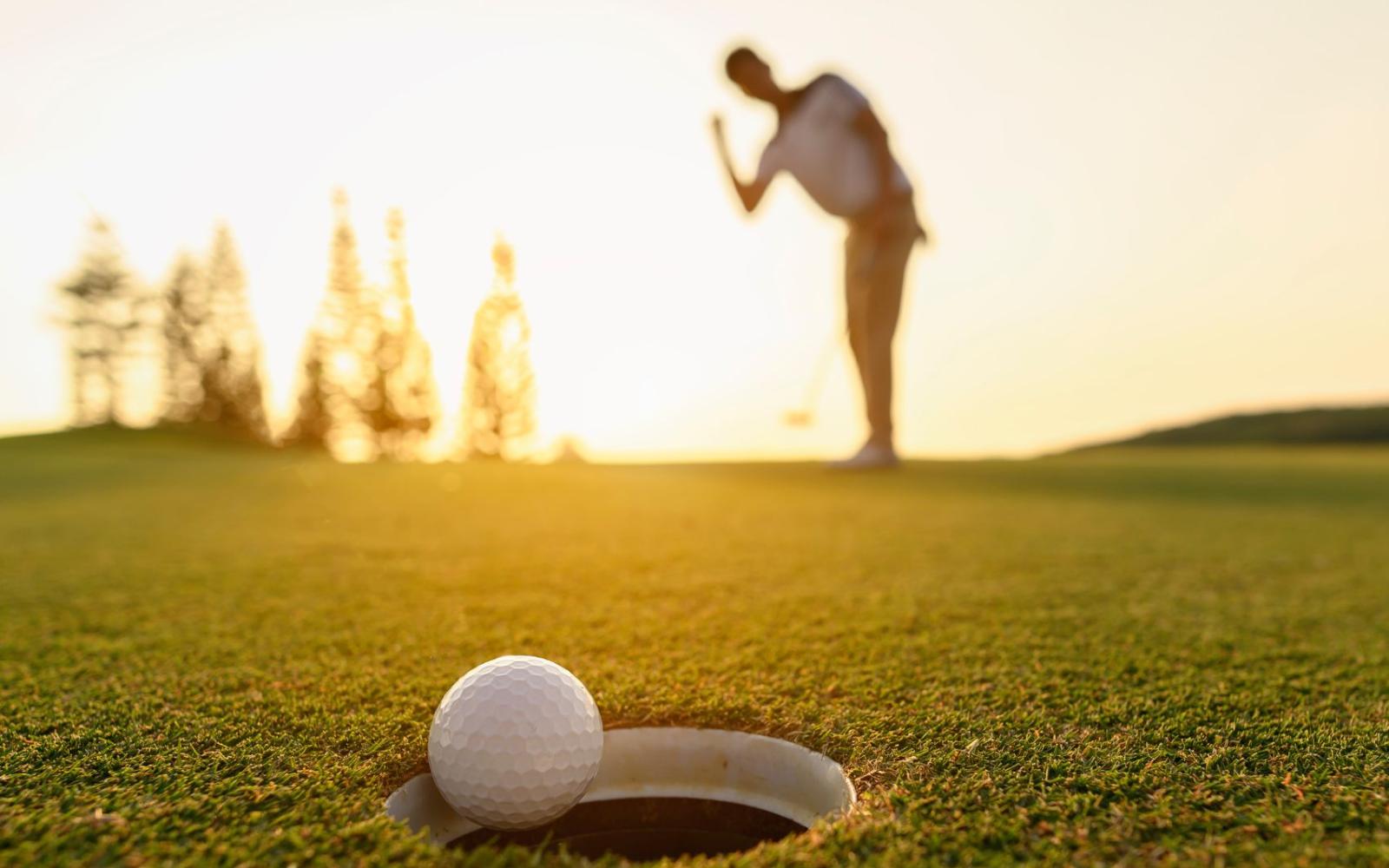
Whether you’re new to golf or a long-time pro, you’ve probably heard about illegal golf balls. Though the name sounds ominous, illegal golf balls are simply balls that don’t meet the regulations set forth by the world’s premier golf organizations. These regulations are intended to ensure fair and equal play on the green so that no one gets a leg up in a tournament play because of a high-tech golf ball.
Though illegal golf balls are often designed to address certain problems, they present some serious consequences. Here’s a closer look at what they are and how illegal golf balls can impact your game today and in years to come.
What Are Legal Golf Balls, and Why Are They Important?
To understand illegal golf balls, it’s important to first know what legal golf balls are. The United States Golf Association (USGA) and the Royal and Ancient Golf Club of St. Andrews (R&A) are the golfing organizations that set the rules and standards for golfing worldwide, including the types of golf balls that are okay to use in a game. Balls that fit these specifications are legal golf balls. This means that illegal golf balls don’t conform to USGA and R&A requirements.
Illegal golf balls are often used for recreational play because most golfers aren’t competing in a formalized competition. You’ll easily find illegal golf balls sold in sporting goods stores but know that there are significant cons to opting for these over the pro-approved legal golf balls.
If you’re not a professional golfer, it may seem like these rules don’t impact casual play. However, legal golf balls are essential for fair play on the green. These conforming golf balls ensure that you and other players don’t have an unfair advantage over others. If you truly want to perfect and level up your game, sticking to legal golf balls is the first step.
Unlike legal golf balls, illegal golf balls are usually missing at least one of these requirements. In the next section, we’ll look at some common examples of illegal golf balls.
Examples of Illegal Golf Balls
Illegal balls are sold in many golf and sporting stores, so they’re easy to find when you’re shopping for a new golf ball. They often look similar to USGA standard balls and can come in various colors.
Some golf ball brands, like Polara and Kaede, design illegal golf balls intentionally. These balls can help you add more distance to your ball travel or reduce drag, among other perks that can help your game.
Here are some common examples of illegal golf balls:
- Asymmetrical balls: Polara self-correcting golf balls that make the ball fly farther
- Non-conforming aerodynamic designs: Kaede Fly Distance Golf Balls with 19% less drag, making them easier to control in various weather conditions
- Excessive rebound velocity: MG Golf Balls are designed for senior golfers
- Self-correcting balls: Polara Ultimate Straight golf balls to assist in direction control
Consequences of Using Illegal Golf Balls
Though illegal golf balls can make your golf game better, that doesn’t necessarily make them the best option. There are some consequences that come with regularly using an illegal golf ball.
For starters, illegal golf balls give you an unfair advantage over other players, but also over yourself! They increase the distance you can hit it, reduce slicing and hooking, and can even make it easier to control the ball in windy weather.
Though these are upsides, they don’t challenge you to refine your game. Some illegal golf balls can also be difficult to putt and spin, making them less than ideal when trying to improve your golf game.
At the tournament level, using illegal golf balls has even more serious consequences. These penalties may be disqualification, revoked titles, or losing prize money. Not to mention the reputational damage that you and the tournament may endure. Since illegal golf balls are associated with giving players an unfair advantage, you risk being viewed as an unfair player.
How Regulations Affect Professional and Amateur Players
The consequences of illegal golf balls can be serious, but it’s also important to recognize that golf ball regulations don’t impact everyone in the same way. How these regulations impact you depends on your level of play.
If you are hoping to play in a tournament or another form of official play at any level, it’s essential to avoid illegal golf balls. Using these may damage your reputation and ability to compete in official tournaments in the future. Plus, you’re missing out on the opportunity to level up your golf skill without the added support. Golf instructors often advise against using illegal golf balls since they can hinder skill development.
Many golfers are casual players, though. If this is you, then you have flexibility when deciding whether to give illegal golf balls a try. If you decide to play with others, it’s important to make sure everyone in the game is using the same type of ball to ensure fair play.
Common Misconceptions About Golf Balls
There’s a lot of information available to golfers these days, but some may lead you astray. Let's correct some common misconceptions about golf balls:
- Practice balls are not necessarily illegal: Check the package or manufacturer’s website to determine if the ball is illegal. Some practice balls are perfectly aligned with the regulations.
- Illegal balls don't always improve overall performance: In fact, some are harder to putt accurately due to unregulated dimensions.
- Not all illegal balls are asymmetrical: Illegal golf balls can also vary in diameter or weight.
- Not all non-standard balls are illegal for recreational play: Like with practice balls, it’s important to check the manufacturer’s website to ensure the ball is legal. But just because it’s a non-standard ball doesn’t mean it’s illegal.
2028 Rule Changes and Their Impact
There is a lot of debate on golf ball technology, especially when it comes to the new 2028 rule change that impacts illegal golf balls. Announced by the USGA and R&A, the new rule change will essentially shorten the maximum distance of the golf ball.
Though the new rule won’t go into effect until 2028, there is already controversy around the announcement. Many people, including the PGA, strongly oppose this rule since they don’t believe it addresses the underlying problem that’s been plaguing the golf world for years—the increased driving length. While at the pro level this new rule may make some impact, many don’t believe that the 2028 rule is a long-term solution.
The 2028 rule change starts with adjusting the test measuring how far the golf ball travels. These new testing conditions include:
- Clubhead speed: 125 mph (compared to the previous club swing speed of 120 mph)
- Launch angle: 11 degrees (originally, launches at 10 degrees)
- Spin rate: 2,200 rpm (compared to the previous spin rate of 2,520 rpm)
With these new conditions in place, the organizations expect the rules to reduce the driving distance by up to 15 yards at the pro and elite amateur levels. For the average recreational golfer, this should reduce the distance by five yards or less.
This new rule will go into effect in January 2028 for professional and elite amateur competitions. For recreational golfers, this won’t be in effect until January 2030.
Conclusion: Understanding Golf Ball Legality
It’s important to understand the what and how of golf ball regulations. The specific requirements outlined for the USGA and R&A organizations are intended to ensure a fair and equal game. Illegal golf balls market benefits like easier to putt or improved distance, but that’s not always the case.
At the end of the day, honing your skill by regularly using legal golf balls is the best way to ensure you genuinely learn the art of putting and continue improving your skill.
If you’re a casual, recreational golfer, illegal balls may be perfectly fine to use. However, if you have dreams of competing or are looking to improve your golf technique, then it’s important to think through the consequences of using illegal golf balls.
The great thing about golf is that it’s accessible for all levels, but that doesn’t mean you need to focus solely on getting the fanciest equipment out there, illegal golf balls included. Instead, especially if you’re a novice, focus on refining your basic skill set so that you can play in any situation, no matter the type of ball you use.

